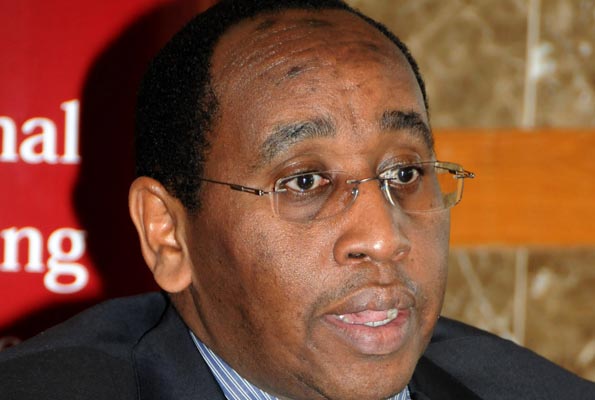A top Bank of Uganda (BoU) official has said Uganda cannot achieve the much publicized Middle Income Status by 2020 going with the recent and projected economic growth.
Adam Mugume, the executive director for research at BoU revealed this on Thursday at Shelton Hotel, Kampala during the post budget discussion organized by Stanbic Bank.
“Uganda’s GDP Per Capita has stagnated since the 1990s,” he said and compared Uganda to Vietnam where the two countries were at US$200 in 1990s, but that today, Vietnam is at US$2000 while the East African nation is at $784.
President Yoweri Museveni has been promising Ugandans that the country will achieve Middle Income Status in the next four years, however, Mugume does not think it is possible given the current macroeconomic stand.
According to Mugume, if oil is drilled, the economy is expected to grow at 6.5%. However, he says that the rate is low for sustainable growth. The country needs 10% if it is to maintain sustainable growth.
He says Foreign Direct Investments from countries like Kenya have reduced since President Uhuru Kenyatta took over thus affecting Uganda’s economy.
He added that Uganda’s Balance of Payment deficit has reduced a bit largely due to the current economic crisis is exacerbated by low consumption, adding that once the aggregate demand goes up again, the Balance of Payment deficit will worsen.
He added that the private sector alone cannot drive the desired growth.
He further noted that the government should desist from borrowing, saying that the country’s current debt is unsustainable. Uganda’s external and domestic Public debt stands at USD 8.7 billion (30.9 trillion Shillings).
According to finance minister Matia Kasaija, the debt is sustainable over the medium to long term.
Kasaija said the debt in nominal terms is equivalent to 33.8 percent of the Gross Domestic Product. That he said is lower than 50 percent threshold beyond which public debt becomes unsustainable.
Mugume disagrees with the assertion and says that continued borrowing will further affect the economy which has already slackened.
Mugume adds that the current debt remains big given that Uganda Revenue Authority can only collect 14 percent of the Gross Domestic Product from taxes.





